Change has become the one constant these days. Nonetheless, it is noteworthy how fast people all around the world have quickly moved to accommodate their lives and work. In effect, our ability to adapt is what has made it possible for humans to survive and thrive. The same analogy can be applied to compliances programs and how risk management and COVID-19 changes are tackled.
The agility of your program to quickly identify and respond to new risks is what will determine its livelihood as well as that of the organization as a whole. The global COVID-19 crisis certainly brought that lesson to the forefront, but it’s important to note that it is a reiterated lesson, not a new one.
With a changing risk landscape comes a need for new risk assessments and a subsequent adjustment of controls to contain those new or heightened risks. Risks constantly change and evolve (as should your compliance program). All guidance released by multiple enforcement authorities point to the same conclusion: A stale program is a failed program, no matter how well your compliance processes were designed in the first place.
The question remains: How do compliance teams maintain the agility to swiftly respond to change and ensure the continuity of business and compliance? Let’s explore some of the possibilities.
An Agile Risk Assessment Process
Scoping risk assessments, in general, is a daunting exercise, reassessing risks in today’s changing landscape is frightening. Current conditions are unlike anything we have ever faced before and factors, usually not taken into consideration, may today shift paradigms.
Consider, for instance, whether your company relies heavily on third parties for business continuity or generation. How are those third parties tackling the risks brought about by the global crisis? Do they have sufficient controls in place to ensure that your organization is not exposed to heightened third party risks?
Or take your sales department. Companies are today operating under a lot of pressure, the economy is strained, and people are cutting unnecessary expenses. Your sales team will be the first to feel the pressure and what previously looked like comfortable targets will seem like wishful thinking. Your teams might resort to questionable sales practices to generate revenue. Do you have controls in place to catch any such scams or opaque transactions? Do these new risks require more rigorous controls over your company's contracting process, third party approvals, financial processes, or other? And how can you quickly capture and mitigate these new risks?
The answer lies in decentralizing your risk assessment process to every department in your organization while allowing all the data to flow back in a centralized platform giving you the chance to visualize risks across the company. In fact, the most successful risk assessment programs combine a decentralized process with centralized oversight. Delegate assessments and monitoring of risks to local business units as they are in the best position to assist compliance teams in identifying and qualifying risks. An automated solution will enable an efficient and quick roll-out of risk assessments to local managers while data and results flow back in a transparent and centralized way to the oversight team giving them a global overview of the company’s exposure.
Implement the Right Governance Structure
Delegating, not just tasks, but responsibilities have reached new levels of urgency. The pace with which the virus has spread has, in turn, multiplied the pace with which decisions are made, thus the prominent need to quickly delegate, route, and escalate concerns. It will help no one if top management is constantly bombarded with flagged emails, because, in these times, all decisions seem pressing and important.
Having implemented a robust governance structure will help everyone move quicker and get to the right decision faster by routing those reports or requests more efficiently. Tailor your user governance structure to the company’s organizational set up so that requests from one unit, department, or region are routed to the appropriate manager who then can quickly decide what the next steps are, either by notifying the employee(s) or escalating the matter to the proper stakeholder.
Having a robust governance structure will also allow you to add multiple review lines wherever needed or add backup people to approval processes and ensure that nothing slips through the cracks. Employees may have trouble completing tasks or struggle with availability due to the strains that working from home and caring for their families might impose. Adding more touchpoints to your processes will, therefore, prove efficient to move goals and decisions faster across the finish line.
Enable Fast Communication
Prompt communication has almost become too slow considering the speed with which changes have swept the world these days. New procedures on how to best mitigate the disruptions to business need to be quickly communicated out to everyone in the organization. Compliance teams also need to make sure that messages do not slip through the cracks and that everyone has read and understood the company's new measures and directives.
Having the right IT infrastructure in place to deploy all of the above will prove vital as technology can help mitigate that need for speed and, by the click of a button, distribute policy or training campaigns, notify recipients and track completion, all at the same time. Giving you the reassurance that all measures decided at the top trickle down to the rest of the company promptly and efficiently.
Rapid distribution of internal campaigns will also give you the chance to include a communication from management and make the tone and the top more visible at a time when it may seem more important to company leaders to put out fires brought about by the crisis. It is, in fact, more crucial than ever for leaders to rally their teams and project empathy to encourage productivity and commitment. All good intentions will, however, be in vain, if not effectively communicated. Arm yourself with the right technology to not only communicate the tone at the top in a scalable and efficient way but to also notify, nudge and track engagement of employees.

Document Every Decision, Big or Small
Having an auditable trail and accessible documentation of your compliance program has always been a point of emphasis. During a crisis, it is even more important to be able to consistently document and log actions and decisions as you go. The pace of change will imply more adjustments by the day, so you may not be able to justify decisions a few months down the line if no proper documentation exists. Comprehensive record-keeping in such fluid circumstances will enable you to understand why certain actions or decisions were taken and why they were changed in such a short time span.
Humanize the Compliance Function
Empower yourself and your team with the right tools that will help allocate valuable time to the human tasks your function requires and that no tool can manage. Free up your time to be a resource to the business and give the needed guidance on the case-by-case matters you can’t cover in your compliance program.
Automate the tedious and time-consuming administrative tasks to make time for the needed spirit lift to your sales team who struggle to balance ethics and market pressure, the support to your financial department on legal requirements to bookkeeping, and guidance to employees working from home.
Risk Management and COVID-19
Compliance does not stop in a time of crisis and compliance teams need to learn how to cope and mitigate the risks that come with a change to increase the stamina of our business. Slow responses and reactive tactics will be the death knell of companies, while their ability to quickly regulate and adjust will minimize the damage. Today’s risk landscape is changing by the day and the more tailored and risk-based your compliance approach, the swifter you will be able to adapt to a changing environment. Today’s times have proved just that.
To learn more about compliance during COVID-19, check out the first virtual Compliance Heroes event we hosted with Edward Hanover, Former CCO at FIFA and Partner at DLA Piper. In the recording, we discuss what the future has in store for compliance and how the pandemic is impacting the industry at large.

Miriam Konradsen Ayed is the VP of Product Marketing at GAN Integrity. With a track record of building and executing GTM strategies and growing pipeline for SaaS products, she brings products to life through value-driven positioning and messaging.

